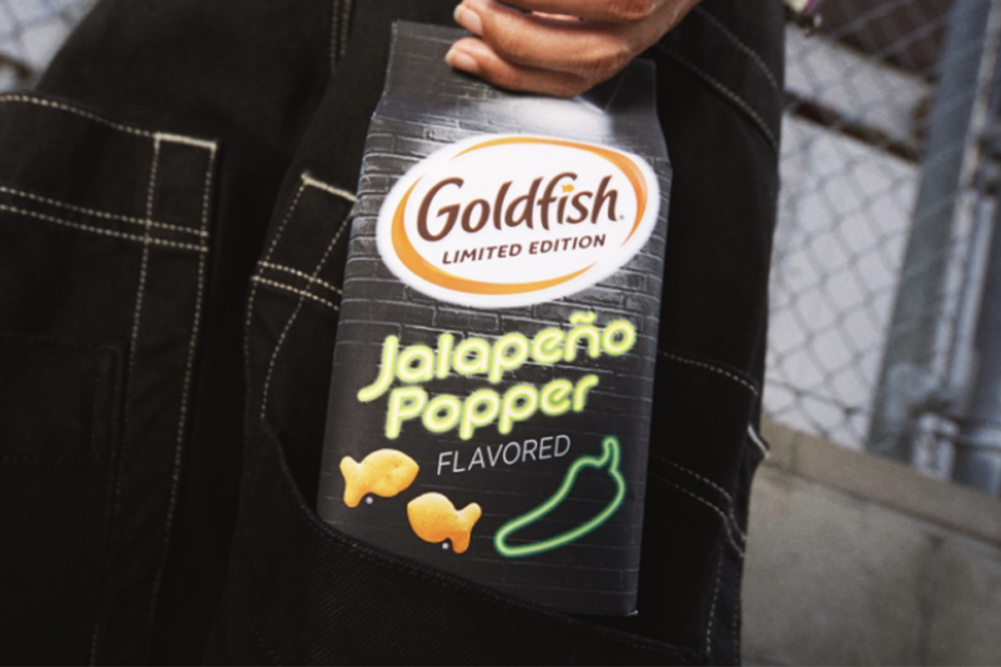CAMDEN, NJ. — Despite lackluster financial results in the company’s most recent fiscal quarter, the Snacks business of Campbell Soup Co. is “winning with consumers,” said Mark A. Clouse, president and chief executive officer. Goldfish crackers and Pepperidge Farm cookies enjoyed standout performance in a period that featured supply and other challenges for the overall business.
Operating earnings of the Snacks business of Campbell Soup were $128 million, down 5% from $135 million the first quarter of fiscal 2021. Net sales of the business were $970 million, down 1% from $977 million a year earlier.
The operating profit decrease was driven by increased administrative expenses due to the settlement of legal claims not specified by the company. Additionally, gross margins in the quarter were lower than a year earlier, pressure the company partly offset by cutting marketing and selling expenses.
“Gross margin performance was impacted by higher cost inflation, unfavorable product mix, and higher levels of promotional spending, largely offset by the benefits of recent pricing actions, supply chain productivity improvements, and cost savings initiatives, and lower other supply chain costs,” Campbell Soup said.
Accounting for the 1% decrease, volume/mix was down 4% while price and sales allowances were up 4%. Promotional spending was a 1% detractor to sales.
“Declines in partner brands, Pop Secret popcorn driven by elevated prior-year demand, and Late July snacks due to supply pressures were partially offset by gains in Goldfish crackers and Pepperidge Farm cookies,” the company said. “Sales of power brands increased 3%.”
In a call with investment analysts Dec. 8, Mr. Clouse looked beyond Campbell Soup sales to retailers in concluding underlying demand trends for the company’s products were strong.
“End market performance was strong, growing 5% over the prior-year quarter and 9% on a two-year basis,” he said. “This dynamic has resulted in low levels of retail inventory that we’re working on and expect to recover through the second half of the fiscal year. Our power brands continue to fuel performance with in-market consumption growth of 6% this fiscal year and 13% on a two-year basis, driven by double-digit consumption growth across the majority of our brands.
“We are pleased to see repeat rates on all eight power brands ahead of the prior year and compared to fiscal 2020. Goldfish performed very well in the quarter, increasing share by 0.5 point and growing consumption high single digits versus prior year behind strong marketing activation, improved performance in multipacks and continued successful limited-edition flavor innovations resulting in improved base velocities and increased household penetration.
“We are winning with consumers, gaining share and driving significant consumption increases.”
Success has been fueled by innovation, Mr. Clouse said, adding the limited-edition Goldfish jalapeño popper was the top velocity new item launched in the cracker category in the quarter. It was the second straight quarter Pepperidge achieved this designation with a limited-edition introduction, he said.
“We also continue to increase the relevance of this brand and broaden its appeal beyond our traditional kids’ audience with 60% of new buyers being households without kids,” he said.
Success in the Snacks business during the quarter was not limited to Pepperidge, Mr. Clouse said. Share gains by other brands included Snack Factory Pretzel chips, 2.5 points; Kettle brand potato chips, more than 1 point; Cape Cod potato chips, 2.6 points.
He said the quarter was not without challenges. Labor availability issues resulted in market share losses for cookies, Lance Crackers, Late July and Snyder’s of Hanover pretzels.
Responding to a question, Mr. Clouse said the labor problems affected the Snacks business more than expected.
“I think the good news is we’ve taken a lot of corrective actions, especially over the last 30 to 60 days, and we’re seeing real progress,” he said. “So our vacancy rates are down about 30% from where they were a month or so ago, and we expect that to continue to progress as we go into the second quarter and then more completely, I’d say, in the second half.”
He said the company’s Snacks business is “inherently more labor intensive” than its other businesses.
Campbell Soup net income in the first quarter was $261 million, equal to 86¢ per share on the common stock, down 15% from $309 million, or $1.02 per share. Net sales were $2.24 billion, down 4.3% from $2.34 billion.
In the second half of the company’s fiscal year, Campbell Soup anticipates a greater impact on its results from inflationary pressures. The company anticipates core inflation in the high single digits for the year.
“The company expects to manage these inflationary headwinds with positive net price realization, supply chain productivity improvements, and cost savings initiatives,” Campbell Soup said. “Along with the continued recovery of labor, the company expects these actions to result in margin progress and earnings recovery through the year.”





